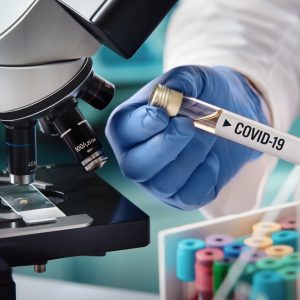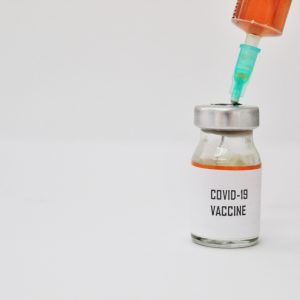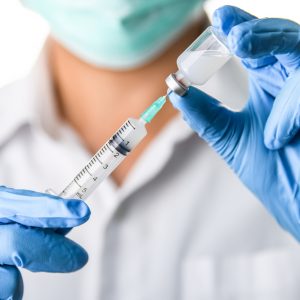COVID-19 Vaccine: The First Human Trials

In the United States, the first human trial of the COVID-19 causing virus has begun. Four patients were injected, the trials being held in the Kaiser Permanente research facility. The research facility is situated in Washington, in Seattle. The trial is being funded by the National Institutes of Health. It is reported that the vaccine does not cause COVID-19, but instead is composed of genetic code that is harmless. This genetic code has been copied from the novel coronavirus and helps to prepare the body to fight off the disease-causing virus, should it enter the body of a vaccinated individual. Typically, vaccines are made using weakened or killed forms of the virus, but not the mRNA-1273.
Does the Vaccine Work?
It is revealed by experts that there are still several months to go before we know for sure whether the vaccine that has been developed and is in its testing stages actually works. The first patient to have received the vaccine is a mother of two, residing in Seattle, who is 43 years old. The woman’s name is Jennifer Haller, and she considers being part of the testing of the vaccine an “amazing opportunity” fr her to contribute to something good. The first human trial is being sped up, even sidetracking the usual check of ensuring that the vaccine triggers an immune response in animal subjects before a human trial.
How Was the Vaccine Developed?

Moderna Therapeutics is a biotechnology company that is behind the development of the vaccine. The company assures that the vaccine was made using a tried and tested process. Dr. John Tregoning is an expert in infectious diseases, employed at the Imperial College London UK, and he has shared that the vaccine is developed on pre-existing technology. Tregoning has also assured that the mRNA-1273 vaccine has been made at high quality and using safe methods. The trial is also closely monitored. Volunteers are being dosed with the experimental mRNA-1273 vaccine in varying amounts. Each volunteer is given two injections that are administered 28 days apart. The injections are administered to the upper arm.
How Long Till The Vaccine Is Available to the Public?
Even after the safety tests are performed and if they are successful, it is possible for the process to take up to 18 months for the vaccine to actually become publically available. Of course, research has been accelerated and everything relating to the vaccine has been accelerated to break-neck speed. More than 20 vaccines are in development, not just one and only one has begun human trials, while the others are in the animal research stage. The process is lengthy and there is only so much it can be accelerated. Even if testing is sped up, there is still the issue of mass production of the vaccine. Further, even when the vaccine is publically available, preference will be given to healthcare workers and to people at the highest risk of mortality from the disease.
What Can We Expect From the Vaccine?
The potential vaccine against COVID-19 will inevitably and unfortunately be less effective in people of older age. This is due to aged immune systems that don’t respond to immunization as well as younger immune systems do. This is seen every year with the usual flu vaccine. We can also expect side effects, as we see in most drugs and vaccines, and medicines in general. However, at this point, without clinical trials, it is not possible to know the side effects of the experimental vaccines.
What Drugs Are Known to Be Effective Against COVID-19?

While a vaccine against COVID-19 is being developed, doctors are busy at work testing the drugs that we already have available against the COVID-19 disease to see what is effective. The main drug that seems to be effective against COVID-19 is remdesivir, an Ebola drug that is able to kill a range of viruses. There was promise in HIV drugs, specifically lopinavir and ritonavir, but the trials proved disappointing results. However, it is suspected that the patients used in the trials were too far along the infection to have shown efficacy, so this trial will have to be repeated. Of the least interest but still showing some glimmer of effectiveness is an anti-malarial drug, chloroquine.
The best way of preventing infection before an effective vaccine is developed is to exercise good hygiene, which includes proper and thorough hand washing for 20 seconds, avoiding touching the face and distancing yourself from others. Paracetamol, plenty of rest and fluids are the only hope we have at the moment for those who are infected. The world is waiting for a vaccine for COVID-19, but we have a long wait ahead of us.





